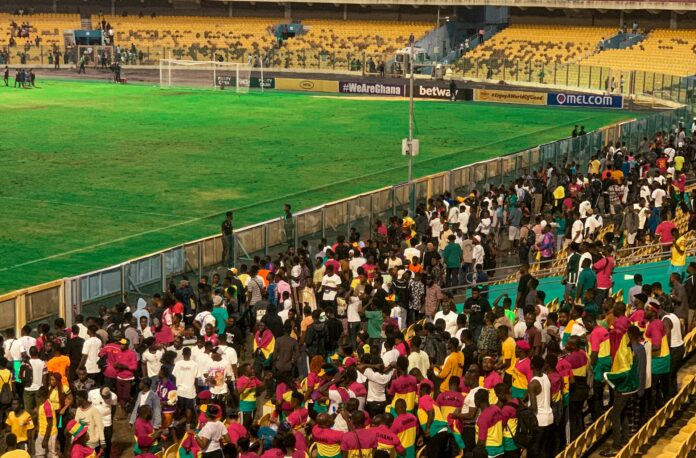For countless young Ghanaian footballers, the dream of playing in Europe represents more than just career advancement. It is a symbol of success, a gateway to financial freedom, and a source of pride for families and communities. But behind the glamor of European stadiums and elite competitions lies a brutal reality one marked by exploitation, false promises, and emotional hardship.
The Lure of European Football
From Accra to Tamale, Cape Coast to Kumasi, the dream is the same: secure a trial abroad, impress the scouts, sign a contract, and change your life forever. European football is viewed as the pinnacle, a place where talent is rewarded, and players can rise from obscurity to global recognition.
Agents, scouts, and football “facilitators” often fuel these ambitions, selling the European dream with grand assurances. Stories of successful exports like Michael Essien, Thomas Partey, and Mohammed Kudus serve as constant reminders that it is possible. But for every Ghanaian who makes it to the top, dozens more are left stranded in foreign countries, broken by the system they hoped would save them.
How to Identify Legitimate Agents and Clubs
A major pitfall for young players is the growing menace of fake agents. These individuals pose as representatives of reputable clubs, charging desperate players and their families exorbitant fees for trials that either do not exist or are grossly misrepresented.
Legitimate agents are typically registered with football associations, particularly FIFA and the Ghana Football Association (GFA). They operate transparently and do not demand large sums of money upfront. Players and their families should research agents, request official documentation, and verify club affiliations before engaging in any deals. Football Associations and entities also provide a list of licensed intermediaries, which can be a helpful starting point.
Furthermore, genuine clubs tend to operate through structured and well-communicated channels. Any trial that requires visa fees, processing costs, and “booking fees” without formal communication from the club itself should raise immediate red flags.
The Psychological Impact of Failed Trials
Beyond the financial risks, there’s a significant psychological toll associated with failed trials. Players often leave Ghana with high hopes and the weight of expectation on their shoulders. When things do not go as planned, whether due to poor performance, exploitation, or cultural challenges, the emotional crash can be devastating.
Many return home feeling ashamed, isolated, and mentally exhausted. Their communities, once filled with hope, may view their return as a failure. This stigma has led to depression, loss of motivation, and, in some cases, complete withdrawal from football altogether.
Mental health support for these young men is virtually non-existent, and their struggles are often dismissed. The need for counselling and rehabilitation services is critical — not just for their football careers, but for their personal well-being.
The Need for Financial Injection in the Domestic League
At the heart of this crisis is a larger systemic issue; the underdevelopment of Ghana’s domestic football scene. Local clubs, often underfunded and poorly resourced, struggle to offer competitive wages and facilities. This pushes many players to see foreign trials —no matter how risky as their only route to professional fulfilment.
A serious investment in the Ghana Premier League and Division One clubs could reverse this trend. If local players saw a future in Ghanaian football, fewer would fall prey to fake agents or embark on desperate trips abroad. Infrastructure, player welfare, and competitive remuneration must be prioritized if Ghana is to retain its talent.
The European dream is still alive for many young Ghanaian players, but it has become entangled in a web of exploitation, unrealistic expectations, and systemic neglect. Addressing this issue requires a multi-faceted approach: education, regulation of agents, psychological support, and, most importantly, substantial investment in domestic football.
Until then, Ghana’s most gifted footballers will continue to chase dreams overseas, not knowing whether they’re running toward glory.

